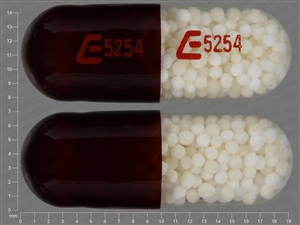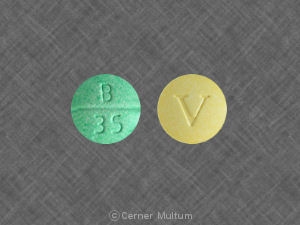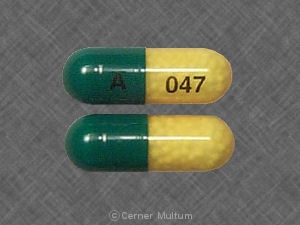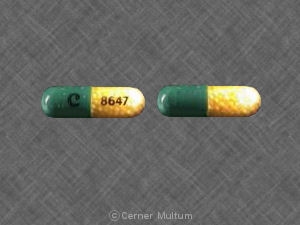phendimetrazine
What is the most important information I should know about phendimetrazine?
You should not use this medicine if you have glaucoma, overactive thyroid, severe heart problems, uncontrolled high blood pressure, advanced coronary artery disease, extreme agitation, or a history of drug abuse.
Do not use this medicine if you have used an MAO inhibitor in the past 14 days, such as isocarboxazid, linezolid, methylene blue injection, phenelzine, rasagiline, selegiline, or tranylcypromine.
What is phendimetrazine?
Phendimetrazine is similar to an amphetamine. Phendimetrazine stimulates the central nervous system (nerves and brain), which increases your heart rate and blood pressure and decreases your appetite. Phendimetrazine is used together with diet and exercise to treat obesity. Phendimetrazine may also be used for purposes not listed in this medication guide.
What should I discuss with my healthcare provider before taking phendimetrazine?
You should not use phendimetrazine if you are allergic to it, or if you have:
- severe heart problems;
- advanced coronary artery disease (clogged arteries);
- severe or uncontrolled high blood pressure;
- overactive thyroid;
- glaucoma;
- extreme agitation or nervousness; or
- a history of drug abuse.
Do not use phendimetrazine if you have used an MAO inhibitor in the past 14 days. A dangerous drug interaction could occur. MAO inhibitors include isocarboxazid, linezolid, methylene blue injection, phenelzine, rasagiline, selegiline, tranylcypromine, and others.
Weight loss during pregnancy can harm an unborn baby, even if you are overweight. Do not use phendimetrazine if you are pregnant. Tell your doctor right away if you become pregnant during treatment.
Tell your doctor if you have ever had:
- heart disease or coronary artery disease;
- high blood pressure;
- diabetes (your diabetes medication dose may need to be adjusted); or
- an allergy to food dye or aspirin.
Phendimetrazine is not approved for use by anyone younger than 12 years old.
It may not be safe to breast-feed while using this medicine. Ask your doctor about any risk.
How should I take phendimetrazine?
Follow all directions on your prescription label and read all medication guides or instruction sheets. Your doctor may occasionally change your dose. Use the medicine exactly as directed. Phendimetrazine is usually taken 1 hour before meals. Follow your doctor's dosing instructions very carefully.
Never use phendimetrazine in larger amounts, or for longer than prescribed. Taking more of this medication will not make it more effective and can cause serious, life-threatening side effects.
Phendimetrazine is for short-term use only. The effects of appetite suppression may wear off after a few weeks.
Phendimetrazine may be habit-forming. Misuse can cause addiction, overdose, or death. Selling or giving away this medicine is against the law.
Call your doctor at once if you think this medicine is not working as well, or if you have not lost at least 4 pounds within 4 weeks.
Do not stop using phendimetrazine suddenly, or you could have unpleasant withdrawal symptoms. Ask your doctor how to safely stop using this medicine.
Store at room temperature away from moisture and heat. Keep the bottle tightly closed when not in use.
What happens if I miss a dose?
Use the medicine as soon as you can, but skip the missed dose if it is late in the day. Do not use two doses at one time.
What happens if I overdose?
Seek emergency medical attention or call the Poison Help line at 1-800-222-1222. An overdose of phendimetrazine can be fatal.
Overdose symptoms may include confusion, panic, hallucinations, extreme restlessness, nausea, vomiting, diarrhea, stomach cramps, feeling tired or depressed, irregular heartbeats, weak pulse, seizure, or slow breathing (breathing may stop).
What should I avoid while taking phendimetrazine?
Avoid driving or hazardous activity until you know how this medicine will affect you. Your reactions could be impaired.
Drinking alcohol with this medicine can cause side effects.
What are the possible side effects of phendimetrazine?
Get emergency medical help if you have signs of an allergic reaction: hives; difficult breathing; swelling of your face, lips, tongue, or throat.
Call your doctor at once if you have:
- pounding heartbeats or fluttering in your chest;
- tremors, severe agitation, feeling restless, trouble sleeping;
- unusual changes in mood or behavior;
- little or no urination; or
-
increased blood pressure --severe headache, blurred vision, pounding in your neck or ears, anxiety, nosebleed.
Common side effects may include:
- flushing (warmth, redness, or tingly feeling);
- increased sweating or urination;
- dizziness, headache;
- blurred vision;
- dry mouth, nausea;
- diarrhea, constipation, stomach pain; or
- increased or decreased interest in sex.
This is not a complete list of side effects and others may occur. Call your doctor for medical advice about side effects. You may report side effects to FDA at 1-800-FDA-1088.
What other drugs will affect phendimetrazine?
Other drugs may affect phendimetrazine, including prescription and over-the-counter medicines, vitamins, and herbal products. Tell your doctor about all your current medicines and any medicine you start or stop using.
Where can I get more information?
Your pharmacist can provide more information about phendimetrazine.
Remember, keep this and all other medicines out of the reach of children, never share your medicines with others, and use this medication only for the indication prescribed.
Every effort has been made to ensure that the information provided by Cerner Multum, Inc. ('Multum') is accurate, up-to-date, and complete, but no guarantee is made to that effect. Drug information contained herein may be time sensitive. Multum information has been compiled for use by healthcare practitioners and consumers in the United States and therefore Multum does not warrant that uses outside of the United States are appropriate, unless specifically indicated otherwise. Multum's drug information does not endorse drugs, diagnose patients or recommend therapy. Multum's drug information is an informational resource designed to assist licensed healthcare practitioners in caring for their patients and/or to serve consumers viewing this service as a supplement to, and not a substitute for, the expertise, skill, knowledge and judgment of healthcare practitioners. The absence of a warning for a given drug or drug combination in no way should be construed to indicate that the drug or drug combination is safe, effective or appropriate for any given patient. Multum does not assume any responsibility for any aspect of healthcare administered with the aid of information Multum provides. The information contained herein is not intended to cover all possible uses, directions, precautions, warnings, drug interactions, allergic reactions, or adverse effects. If you have questions about the drugs you are taking, check with your doctor, nurse or pharmacist.
Copyright 1996-2020 Cerner Multum, Inc. Version: 9.01. Revision date: 7/26/2018.
|
 |
|






